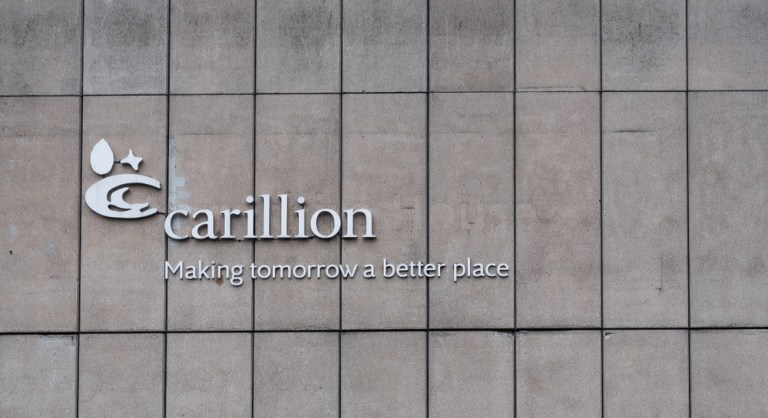Fresh Questioning Amid Carillion’s Collapse

Carillion’s ripple effect continues, with new questions lobbed at the firm’s former executives as the government weighs in on late payments. Elsewhere, late payments clip the wings of at least one air carrier in India, amid a tough competitive market and cash flow mismatches.
The ripple effects of the Carillion collapse continue in the U.K., as new probes open into the liquidated company.
News came this past week that the executives who helmed the multinational facilities management firm – including Philip Green, who served as chairman, and Richard Howson, who was chief executive – were interviewed by the U.K.’s Insolvency Service. According to the publication, the interviews were part of the government’s existing “wide-ranging” investigation into the company, including its payment practices. As pertains to the executives, at issue is whether they should face bans from serving in any boardroom capacity, which can last as long as 15 years.
As has been widely reported, the firm went under early last year under the crushing weight of debt and liabilities, with as much as two billion pounds owed to subcontractors and creditors, who number around 30,000 at last tally. The movement toward reform over outsourcing activities and greater scrutiny overall has led to negative sentiment over the sector, according to published reports.
The U.K. government itself has weighed in on the issue, as members of Parliament stated last month in a report that late payments have harmed small businesses and that there are “disgracefully” bad payment practices afoot, and that late payers should be fined by the government.
The negative sentiment that extended in the wake of the company’s failure has helped hit the sector on the London stock market by as much as four billion pounds. As noted in reports, Interserve, Babcock and others have seen stock values fall by as much as 40 percent through the past year.
In the past few months, the Federation of Small Businesses has said that larger firms that are late in paying their suppliers should not be allowed to have government contracts. That comes in the wake of criticism from the Federation that the Prompt Payment Code – signed by the company before it went bust – has not been effective. The late payments epidemic has led to as many as 50,000 company closures on an annual basis and a reported economic cost of 2.4 billion pounds.
In individual company news, full-service airline Jet Airways defaulted on a loan payment to a consortium of India-based banks and continues to delay salary payments to its employees. The airline said in a filing that the interest payment on the loan, which had been due on Dec. 31, has been delayed on a temporary basis due to a “cash flow mismatch.”
The debt default has led to a ratings cut by credit rating outfit ICRA, which stated that the downgrade came amid a “stretched” credit profile as salary payments were being delayed and the as the airline was delaying rental payments to aircraft lessors. Nikkei Asian Review reported that the company has 17 billion rupees due between December and March, and 24.5 billion rupees due through the next fiscal year.
The business publication noted that the financial troubles have come amid “cutthroat competition” in India, where fares are now being priced below cost in several markets. At the same time, fuel prices are at multi-year highs, while the rupee has slumped. The Indian aviation market is among the largest in the world, noted Nikkei, taking its place after the U.S. and China, with as many as 100 million passengers flying domestically annually. Jet Airways has posted losses for three straight quarters.